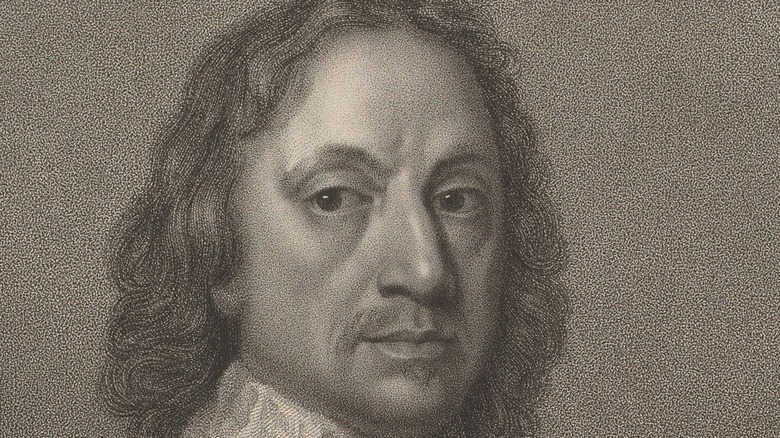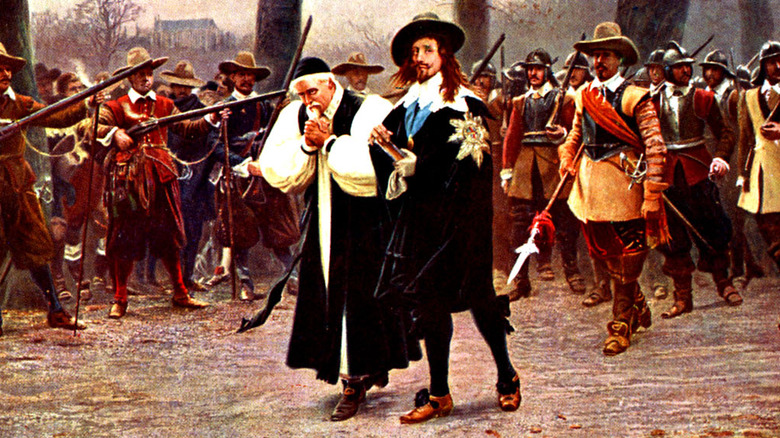Why Oliver Cromwell Was Not The Heroic Lord Protector History Portrays Him To Be
The countries that now comprise the United Kingdom of Great Britain and Northern Ireland have a combined history that dates back thousands of years. The storied history of England, Northern Ireland, Scotland, and Wales has seen heroes, like Alfred the Great or Sir Francis Drake, while others, such as Kings Henry VIII and Richard III, fall more into the villain category, depending on your point of view. There are also those whom popular history portrays one way, while the historical narrative may support an opposing viewpoint. One of the more controversial figures in British history who falls into this gray area (per History) is Oliver Cromwell, Lord Protector of the realm.
Cromwell was born sometime in 1599 and was raised as a devout Puritan. He came from a large family with a powerful name, as he was a descendant of the King Henry VIII's close advisor Thomas Cromwell (per the English History website) who was later executed by the same Henry. Oliver Cromwell grew into a respected military leader who was well known for his ruthlessness on the battlefield. Oliver was an equally cunning politician whose dealings with Parliament changed the ruling structure of England.
Civil War and Lord Protector
Cromwell, along with other members of Parliament, had serious issues with many of the laws imposed on the common people by the king, Charles I. Cromwell was so upset that he and his co-conspirators literally raised an army and started the English Civil War in 1642 (per another History post). However, it was not until the Second English Civil War, beginning in 1648, that Cromwell accomplished the task of overthrowing and executing Charles I (above). With the monarchy abolished, Cromwell managed to set up his own sort of government, which honestly was just different factions of the previous Parliament that now couldn't really agree on anything. Cromwell was then appointed Lord Protector in 1653 and held the post until his death in 1658 (per Cromwell Museum).
The controversy around his legacy can be a complicated issue for many. Some see him as a hero of the people, who stood up to a tyrannical, monarchical government. Others see him as a treasonous criminal who overthrew the rightful king, and so became a dictator himself (via Britain Magazine). The wars he caused, along with the massacres and ransacking that came with them (per Ancient Origins), cast him in a harsher light. Yet when looking at the history, it seems like the truth could still lie somewhere in the middle. Oliver Cromwell was a voice for the people in some respects, but the violence he used to impose his will is also something to consider when examining whether or not he was truly a hero or a villain.

